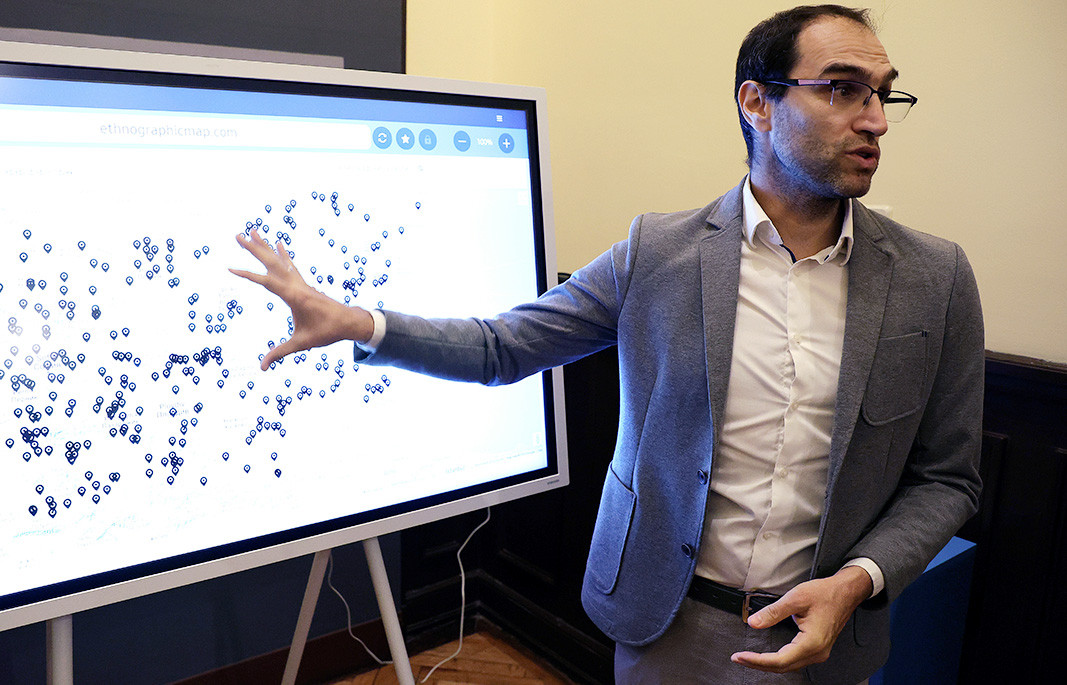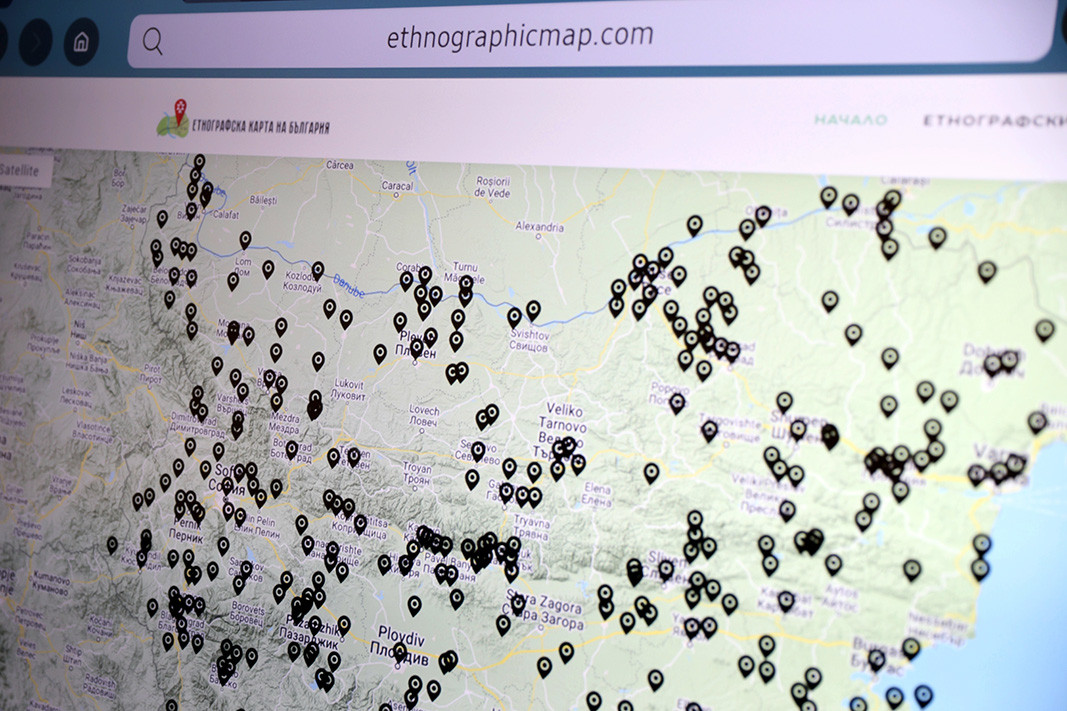The National Ethnographic Museum now has a digital ethnographic map of Bulgaria presenting the artifcats it has collected through the years. The map shows – comprehensivley and region by region – elements of the movable and intangible ethnographic cultural heritage of the country. For the time being, the application can only be seen inside the museum building, where visitors will be able to see pictures, photographs and descriptions of national folk costumes, architectural samples, typical arts and crafts and elements of festive rituals from towns and villages in all parts of the country.
“More than 1,000 towns and villages have been uploaded to the ethnographic map, the sites themselves are more than 2,000 in number,” says Ivaylo Parvanov, one of the people who created the application: 
“At the moment, the map is divided into two modules – settlement presentation of the sites, indicating which part of the country each one of them came from, to be added to the archives of the ethnographic museum. The other part are the ethnographic regions where brief information about each of them is available. Our aim was for the information available on the map to be in a format easily read on a phone. In the times we are living in, the information users are able to process is the information they see when the scroll down on their phones.”

Besides detailed descriptions of the settlements, the map also includes original sketches and drawings, audio, video and photo documents and texts from the archive of the national centre for intangible cultural heritage of the Institute of Ethnology and Folklore Studies with Ethnographic Museum. So far, its expositions have rarely featured the horo dances, the games, tales, proverbs but with the potential of this new technology, they will be made available to all.
This is the second digital project developed by Ivaylo Parvanov, who created a Digital Dance Atlas in 2021, as part of an interdicisplinarythesis. Together with the team he has been working with on the projects, he has been striving to breathe “digital life” into the vast wealth of the cultural legacy in the Bulgarian lands: 
“Today we are seeing the fruits of the efforts of a team of 20 people,” says Ivaylo Parvanov, who specializes in mapping the intangible cultural heritage, and more specifically – dance. “Our aim is for the National Ethnographic Museum to take its rightful place side by side with all other museums in the world.”
The digital ethnographic map of Bulgaria is part of a project for the preservation, presentation and socialization of of Bulgaria’s ethnographic and folklore heritage, implemented with the assistance of the Archives State Agency. It was the Agency that provided copies of original maps by the renowned Bulgarian ethnographer Hristo Vakarelski, the man who pioneered ethnographic mapping in bulgarian science. Head of the team of young scientists is Ass. Prof. Petko Hristov, director of the Bulgarian Academy of Sciences' Institute of Ethnology and Folklore Studies with Ethnographic Museum, who says he hopes the research work will expand its range: 
“At the moment we are showing the movable and samples of the intangible cultural heritage on the territory of Bulgaria but this is just the first step. Settlements and artifacts can be added to the map, and it can be extended so as to include the cultural heritage of the Bulgarians from the historical diaspora.”
Translated and posted by Milena Daynova
Photos: BTA, FB / NationalEthnographicMuseum
March 9 is the feast day of the Church of the Forty Martyrs in the town of Veliko Tarnovo - a place of exceptional importance for the Bulgarian statehood, which worthily preserves the memory of the glorious Tarnovo kings. On March 9, the..
Father Lyubomir Leontinow is one of three priests at the Cathedral of St Boris the Conqueror in Berlin and was the first priest ordained for the Western and Central European Diocese in 1994. After completing his theology studies in Bulgaria, he settled..
After Cheesefare (Forgiveness) Sunday, the Great Lent has begun on March 3. Orthodox Christians will abstain from eating animal food including meat, eggs, milk and dairy products. The Great Lent symbolizes the 40 days which Jesus spent in the..
March 9 is the feast day of the Church of the Forty Martyrs in the town of Veliko Tarnovo - a place of exceptional importance for the Bulgarian..
Father Lyubomir Leontinow is one of three priests at the Cathedral of St Boris the Conqueror in Berlin and was the first priest ordained for the Western..

+359 2 9336 661
